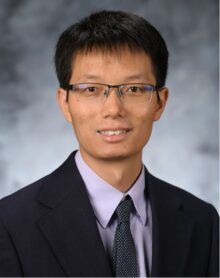Machine Learning for EDA, or EDA for Machine Learning?
Zheng Zhang University of California, Santa Barbara

Abstract:
The rapid advancement of machine learning (especially deep learning) in the past decade has impacted, both positively and negatively, many research fields. Driven by the great success of machine learning in image and speech domains, there have been increasing interests in “Machine Learning for EDA”. In the first part of the talk, I will explain the main challenge of data sparsity when applying existing machine learning techniques to EDA. Then I will show how some data-efficient scientific machine learning techniques, specifically uncertainty quantification and physics-constraint operator learning, can be utilized to build high-fidelity surrogate models for variability analysis and for 3D-IC thermal analysis, respectively. These techniques can greatly reduce the number of required device/circuit simulation data samples.
Another important but highly ignored direction is “EDA for Machine Learning”. The five decades of EDA research has produced a huge body of solid theory and efficient algorithms for analyzing, modeling and optimizing complex electronic systems. Many of the white-box EDA ideas may be leveraged to solve black-box AI problems. In the second part of the talk, I will show how the self-healing idea and compact modeling idea from EDA can be utilized to improve the trustworthiness and sustainability of deep learning models (including large-language models).
Bio:
Dr. Zheng Zhang is an Associate Professor of Electrical and Computer Engineering at University of California, Santa Barbara. He received his PhD degree in Electrical Engineering and Computer Science from MIT in 2015. His research is focused on uncertainty quantification and tensor computation for semiconductor chip design automation, and for responsible and sustainable AI systems. He is a recipient of NSF CAREER award, 3 best journal paper awards from IEEE Transactions in the EDA field, and two best dissertation awards from ACM SIGDA and MIT Microsystems Technology Labs. His work has been recognized by the IEEE CEDA Early Career Award and ACM SIGDA Outstanding New Faculty Award.